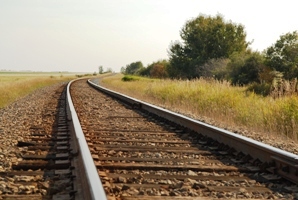 I love travelling by train. It’s so civilised and you get so see so much more interesting scenery than you would do by plane. I have been on the Eurostar from London to Paris once before and it was such a nice experience, so much less stressful than flying.
I love travelling by train. It’s so civilised and you get so see so much more interesting scenery than you would do by plane. I have been on the Eurostar from London to Paris once before and it was such a nice experience, so much less stressful than flying.
This article on the BBC News website caught my eye over the weekend. At first, I thought the train might have stopped in the tunnel but luckily it had not entered the tunnel when the power went off.
There were some interesting words and phrases in the article, too. The first one is in the title:
Eurostar refunds after breakdowns
The phrasal verb ‘to break down‘ means for a machine to stop working and in this case, a ‘breakdown‘ is the situation in which that machine has stopped working.
The next interesting word is in the first paragraph where it is mentioned that there was a ‘power cut‘. A ‘power cut‘ is when the electrical supply to a place is stopped for some reason. We can also ‘cut’ as a collocation with ‘power’ and say ‘to cut the power‘ meaning to stop it.
The next interesting expression is where the author mentions the ‘Paris-bound‘ train. We can use ‘-bound‘ as a suffix to talk about where a train is going. Often, platforms at subway stations are marked as ‘northbound‘ and ‘southbound‘ so you know which direction the trains will be travelling in.
There’s another interesting phrasal verb slightly later on in the article:
By the time the rail replacement buses pulled into Brussels Midi station, at 0330 BST, a sea of weary and disgruntled passengers were met by relatives.
In this situation ‘pull in‘ means arrive and by a ‘sea of passengers‘, the author means a very large group.
What’s your favourite way to travel?
Today’s photo is by David Mackenzie.
Scary experience I’m sure, however for safety there is a walk through in the tunnel for emergencies and each of the railway stations has excellent emergency services.